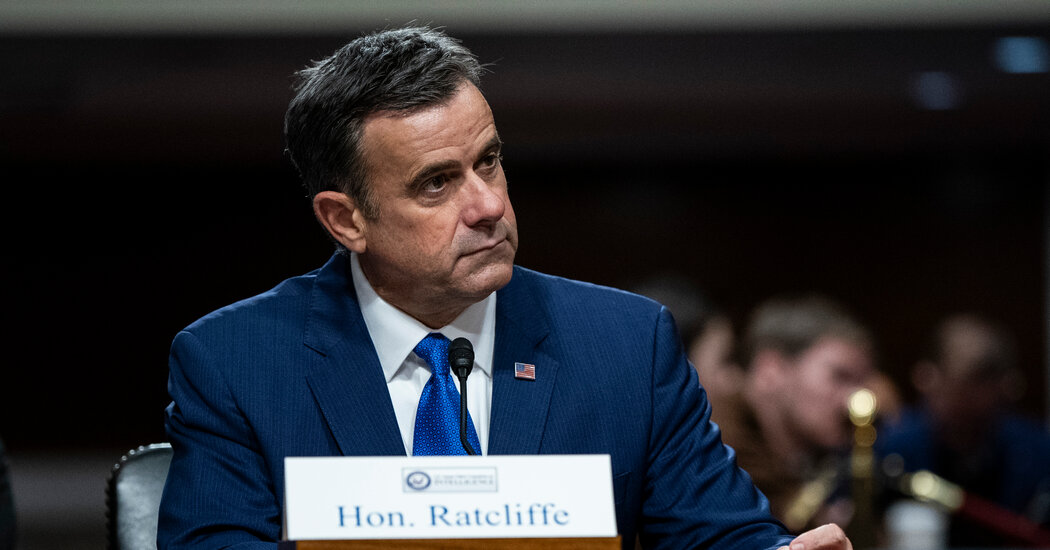Breaking News
C.I.A. Now Favors Lab Leak Theory to Explain Covid’s Origins

For years, the C.I.A. maintained that it lacked sufficient information to determine the origin of the Covid pandemic – whether it arose naturally from a wet market in Wuhan, China, or from a possible lab leak. However, a recent assessment by the agency now leans towards the lab theory, based on existing evidence.
The shift in analysis is not due to new intelligence, but rather a closer examination of the conditions in high-security labs in Wuhan before the outbreak.
Despite favoring the lab theory, the agency acknowledges that the alternative hypothesis remains plausible, and it will continue to assess any credible new intelligence.
The debate over the origins of the pandemic is seen as both an intelligence and scientific issue, with differing opinions among American officials.
John Ratcliffe, the C.I.A.’s new director, has been vocal in his support for the lab leak hypothesis, citing its importance in U.S.-Chinese relations.
During the final weeks of the Biden administration, a classified review was ordered to reassess the pandemic’s origins, leading to the recent shift in the C.I.A.’s analysis towards the lab leak theory.
The agency’s new assessment, made with “low confidence,” highlights the ongoing uncertainty and incomplete intelligence surrounding the issue.
Former officials have expressed openness to a reevaluation of Covid origins intelligence by the Trump administration, with President Biden initiating a new review early in his term.
Senior intelligence officials in the Biden administration defend their methodology, emphasizing that politics did not influence their analysis.
The search for conclusive evidence on the Covid origins remains ongoing, with both natural and lab leak theories lacking decisive intelligence support.
Mr. Ratcliffe has pledged a proactive approach at the C.I.A., potentially leading to further actions to uncover information related to the virus’s origins.
Intelligence officials suggest that answers to the pandemic’s origins may come through scientific breakthroughs rather than intelligence revelations.
Under the Biden administration, the intelligence community leaned towards the natural origins theory, but with low confidence in their assessment.
-

 Destination8 months ago
Destination8 months agoSingapore Airlines CEO set to join board of Air India, BA News, BA
-

 Breaking News9 months ago
Breaking News9 months agoCroatia to reintroduce compulsory military draft as regional tensions soar
-

 Tech News11 months ago
Tech News11 months agoBangladeshi police agents accused of selling citizens’ personal information on Telegram
-

 Breaking News9 months ago
Breaking News9 months agoBangladesh crisis: Refaat Ahmed sworn in as Bangladesh’s new chief justice
-

 Productivity11 months ago
Productivity11 months agoHow Your Contact Center Can Become A Customer Engagement Center
-

 Toys11 months ago
Toys11 months ago15 of the Best Trike & Tricycles Mums Recommend
-

 Guides & Tips9 months ago
Guides & Tips9 months agoHave Unlimited Korean Food at MANY Unlimited Topokki!
-

 Gadgets3 months ago
Gadgets3 months agoSupernatural Season 16 Revival News, Cast, Plot and Release Date






















